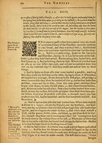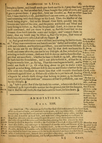By occasion of dining with a Pharisee, (2) after that he hath again confounded them for maligning him for his miraculous good-doing on the Sabboth, (7) he teacheth them humility, seeing their ambition, (12) and in their works to seek retribution not of men in this world, but of God in the world to come: (16) foretelling also that the Jews for their worldly excuses shall not taste of the Supper, but the Gentiles in their place. (25) Yea that so far must men be from all worldliness, that they must earnestly bethink them before they enter into his Church, and be ready to forgo all (34) specially considering they must be the salt of others also.
AND it came to pass when Jesus entered into the house of a certain Prince of the Pharisees upon the Sabboth to eat bread, and they watched him. 2And behold there was a certain man before him that had the dropsy. 3And Jesus answering, spoke to the Lawyers and Pharisees, saying: Is it Lawful to cure on the Sabboth? 4But they held their peace. But he taking him, healed him, and sent him away. 5And answering them he said: Which of you shall have an ass or an ox fallen into a pit; and will not incontinent draw him out on the Sabboth day? 6And they could not answer him to these things.
7And he spoke to them also that were invited a parable, marking how they chose the first seats at the table, saying to them: 8When thou art invited to a marriage, sit not down in the first place, lest perhaps a more honourable than thou be invited of him; 9and he that bade thee and him, come and say to thee, Give this man place; and then thou begin with shame to take the last place. 10But when thou art bidden, go, sit down in the lowest place; that when he that invited thee cometh, he may say to thee, Friend sit up higher; then shalt thou have glory before them that sit at table with thee. 11Because every one that exalteth himself, shall be humbled; and he that humbleth himself, shall be exalted.
12And he said to him also that had invited him: When thou makest a dinner or a supper, call not thy friends, nor thy brethren, nor kinsmen, nor thy neighbours that are rich; lest perhaps they also invite thee again, and recompense be made to thee. 13But when thou makest a feast, call the poor, feeble, lame, and blind, 14and thou shalt be blessed, because they have not to recompense thee; for [a] recompense shall be made thee in the resurrection of the just. 15When one of them that sat at the table with him, had heard these things, he said to him: Blessed is he that shall eat bread in the Kingdom of God.
16But he said to him: A certain man made a great supper, and called many. 17And he sent his servant at the hour of supper to say to the invited, that they should come, because now all things are ready. 18And they began all at once to make excuse. The first said to him, [b] I have bought a farm, and I must needs go forth and see it; I pray thee hold me excused. 19And another said, I have bought five yoke of oxen, and I go to prove them, I pray thee, hold me excused. 20And another said, I have married a wife, and therefore I can not come. 21And the servant returning told these things to his Lord. Then the Master of the house being angry, said to his servant, Go forth quickly into the streets and lanes of the city, and the poor and feeble and blind and lame bring in hither. 22And the servant said, Lord, it is done as thou didst command, and yet there is place. 23And the Lord said to the servant: Go forth into the ways and hedges; and • compel them to enter, that my house may be filled. 24But I say to you, that none of those men that were called, shall taste my supper.
25And great multitudes went with him and turning, he said to them: 26 * If any man come to me and hateth not his [c] father and mother, and wife and children, and brethren and sisters, yea and his own life besides; he can not be my Disciple. 27And he that doth not bear his cross and come after me; can not be my Disciple. 28For, which of you minding to build a tower, doth not first sit down and reckon the charges that are necessary, whether he have to finish it; 29lest, after that he hath laid the foundation, and is not able to finish it, all that see it, begin to mock him, 30saying, That this man began to build, and he could not finish it? 31Or what King about to go to make war against another King, doth not first sit down and think whether he be able with ten thousands to meet him that with twenty thousands cometh against him? 32Otherwise while he is yet far off, sending a legacy he asketh those things that belong to peace. 33So therefore every one of you that doth not [d] renounce all that he possesseth, cannot be my disciple.
34 * Salt is good. But if the salt lose his virtue, wherewith shall it be seasoned? 35It is profitable neither for the ground, nor for the dung-hill, but it shall be cast forth. He that hath ears to hear, let him hear.
Footnotes
- ↑ Reward for charitable deeds: and that they may be done for reward against our Adversaries.
- ↑ Worldliness, wealth, and voluptuousness, are the things that specially hinder men from God.
- ↑ No creature so dear unto us, which we must not hate or forsake, if it hinder us, and in that respect that it hindereth us from Christ, or his Church, and our Salvation.
- ↑ He that is a Christian man, must make his account that if he be put to it (as he often may be in times of persecution) he must renounce all that ever he hath, rather than forsake the Catholic faith.
ANNOTATIONS. CHAP. XIV.
↑ 23. Compel them.) The vehement persuasion that God useth both externally by force of his word and miracles, and internally by his grace, to bring us unto him, is called compelling: not that he forceth any to come to him against their own wills, but that he can alter and mollify a hard heart, and make him willing that before would not. St. Augustine also referreth this compelling to the penal laws which Catholic Princes do justly use against Heretics and Schismatics, proving that they who are by their former profession in Baptism subject to the Catholic Church, and are departed from the same after Sects, may and ought to be compelled into the unity and society of the universal Church again. And therefore in this sense, by the two former parts of the Parable, the Jews first, and secondly the Gentiles, that never believed before in Christ, were invited by fair sweet means only: but by the third, such are invited as the Church of God hath power over, because they promised in Baptism, and therefore are to be revoked not only by gentle means, but by just punishment also.
Margin Notes
- 1–13. The Ghospel upon the 16th Sunday after Pentecost.
- 16–24. The Ghospel upon the 2nd Sunday after Pentecost.
- 26–33. The Ghospel for some Martyrs Bishops. 26–35. And for St. Basil. Jun. 14.
- annot. 23. Free-will.
- annot. 23. Heretics may by penal laws be compelled to the Catholic faith.
Margin References
- 26. Mat. 10, 37.
- 34. Mat. 5, 13. Mar. 9, 50.
- annot. 23. ep. 50 paulo post princip. and ep. 204. and lib. 1 cont. ep. Gaudent. ch. 25.


